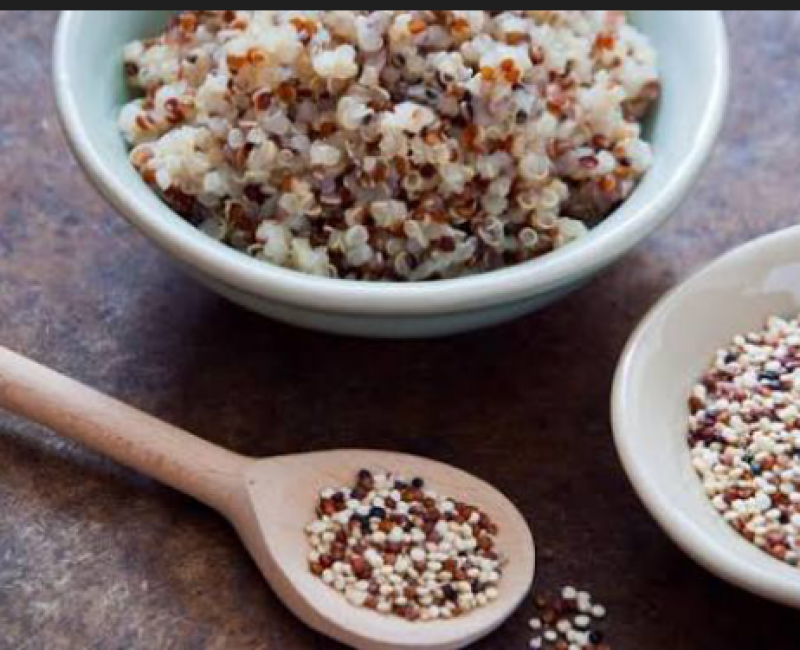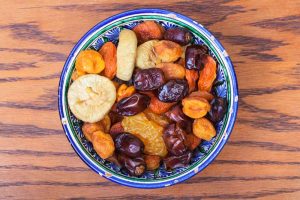Quinoa is a whole grain that is rapidly growing in popularity due to its many health benefits.
Although people can cook and eat quinoa seeds in a similar way to most grains, the quinoa plant itself is more similar to beetroots and spinach. People can eat both the seeds and leaves of this versatile, nutritious plant.
Farmers cultivate over 120 different types of quinoa. However, the most common versions available in grocery stores are white, red, and black quinoa.
In this article, we explain the evidence-based health benefits of quinoa. We also look at the nutritional content of quinoa and how to add it to the diet.
Benefits
Below are some of the health benefits of regularly consuming quinoa.
A plant-based source of protein People following a plant-based diet need to find non animal sources of protein to ensure they are getting enough.
One cup of cooked quinoa weighing 185 grams (g) provides 8.14 g Trusted Source of protein
The proteins in quinoa offer a wide range of amino acids Trusted Source. Amino acids are vital for supporting muscle development Trusted Source and immune activity, among other essential function
This makes quinoa an excellent dietary choice for people following a vegetarian or vegan diet
Quinoa, unlike many other grains, is also an excellent sourceTrusted Source of lysine. This is an essential amino acid. Lysine is vital for the synthesis of proteins.
Although deficiency is rare, it can cause a range of medical issues, as lysine plays a role in processes such as growth and development
- High fiber content
Quinoa has a high fiber content compared with other grains, providing 5.18 gTrusted Source in a single 185 g cup. This equates to at least 15.42%Trusted Source of a person’s daily requirement, depending on their age and sex
According to the Academy of Nutrition and Dietetics, consuming enough fiber can help reduce the risk of several health conditions, including constipation, high cholesterol, high blood pressure, and diverticulosis
Diets rich in fiber may also promote a healthy weight. This is because foods high in fiber help people feel fuller for longer, potentially reducing their overall intake of food
Here, learn more about why people need dietary fiber
- A source of antioxidant
Quinoa is a good source of antioxidants compared with other common grains in a gluten-free diet. Most gluten-free products consist of corn, rice, or potato flour. These generally provide fewer nutrientsTrusted Source than products using quinoa, such as quinoa flour
Quinoa provides vitamin E. This is an antioxidant compound that may help reduce the riskTrusted Source of coronary heart disease, certain cancers, and several eye disorder
New studies regularly emerge that confirm the health benefits of adequate whole grain intake and their antioxidant capacity
- Helps meet manganese requirement
One cup of cooked quinoa contains a very big antioxidant for the body structure
Benefits
Below are some of the health benefits of regularly consuming quinoa
A plant-based source of protein(mg) of manganese. This accounts for around 27.43%Trusted Source of the adequate intake of manganese for males and 35.05% for female
Manganese is essential for development and metabolism Trusted Source. This element also works alongside many enzymes in the body to support their function
Good source of iron
One cup of quinoa supplies 2.76 mg of ironTrusted Source, providing 34.5% of the recommended intake for males and 15.33%Trusted Source for females. Maintaining adequate levels of iron is essential for good health
Iron is necessary for a range of processes Trusted Source in the human body. It is, for example, an essential part of hemoglobin.
This compound carries oxygen in the blood, supporting energy and cell function throughout the body
Adequate iron intake also supports healthy connective tissue and muscle metabolism



































































































This Post Has 4 Comments
Pingback: Boiled Eggs – Benefits and Nutritional Value – ngrDesk News – Breaking News, Nigerian News, Entertainment, Fashion and Styles, Sport, Business and Politics
Pingback: Why Is Corn An Important Staple Crop For Many Reasons? – ngrDesk News – Breaking News, Nigerian News, Entertainment, Fashion and Styles, Sport, Business and Politics
Pingback: Why Is Corn A Popular Staple Crop In Nigeria? – ngrDesk News – Breaking News, Nigerian News, Entertainment, Fashion and Styles, Sport, Business and Politics
Pingback: The Truth About Quitting Smoking - Are You Ready To Make a Change? – ngrDesk News – Breaking News, Nigerian News, Entertainment, Fashion and Styles, Sport, Business and Politics